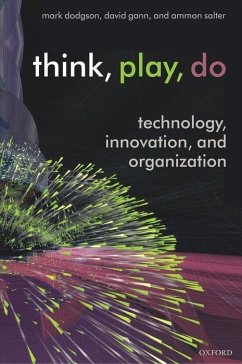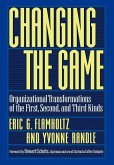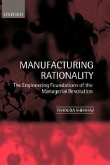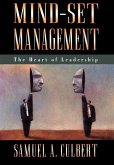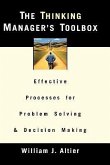The innovation process is the most important of all business processes. Innovation is the means by which value is constructed and efficiencies are created. It is the source of sustainable competitive advantage. This book shows how the innovation process is changing profoundly. Part of the change results from the application of new technologies to the innovation process itself. A new category of technology has emerged which we call 'innovation technology'. This includes simulation and modelling, visualization, and rapid prototyping technologies. When used effectively, innovation technology makes the innovation process more economical and ameliorates some of its uncertainties. These technological changes are accompanied by changing organization structures and skills requirements. The technologies are used in fast moving, creative environments and are suited to project-based organization. They also require the development of new 'craft' skills to realize the possibilities created by the new 'code'. The book outlines a new way of thinking about innovation. Traditional definitions of 'research', 'development' and 'engineering', imply a progressive linearity which doesn't exist in reality. They are also associated with organizational departments, which are breaking down where once they existed, and are in any case non-existent in the vast majority of firms. They also fail to capture the central importance of design in innovation. We propose a new schema for the innovation process: Think, Play, Do. Innovation requires creating new ideas and thinking about new options, playing with them to see if they are practical, economical and marketable, and then doing: making the innovation real. This new schema captures the emerging innovation process using a more contemporary idiom. The book reports in-depth studies from a number of companies and sectors. Major case studies of Procter and Gamble and Arup Partners are presented. It reports on the use of innovation technology in a range of other companies and organizations, from pharmaceuticals in GSK, to engineering design in Ricardo engineering , and welding in TWI. We describe how innovation technology is used in traditional industries, such as in mining, and in public projects, such as the development of London's traffic congestion charge and the stabilization of the leaning tower of Pisa.
Without innovation, companies die. Managing the innovation process well is important for companies and for nations as a whole. This book shows how the innovation process is changing profoundly, with significant implications for managers and public policy-makers. A new kind of technology, 'innovation technology' is being applied to the innovation process. When used effectively, innovation technology makes the innovation process faster, better and cheaper. The book outlines a new schema for the innovation process: Think, Play, Do. Innovation requires creating new ideas and thinking about new options, playing with then to see if they are practical, economical and marketable and then doing: making the innovation real. Using a diverse range of case studies, the book analyses these changes and their implications for managers, students of innovation, policymakers and governments.
Hinweis: Dieser Artikel kann nur an eine deutsche Lieferadresse ausgeliefert werden.
Without innovation, companies die. Managing the innovation process well is important for companies and for nations as a whole. This book shows how the innovation process is changing profoundly, with significant implications for managers and public policy-makers. A new kind of technology, 'innovation technology' is being applied to the innovation process. When used effectively, innovation technology makes the innovation process faster, better and cheaper. The book outlines a new schema for the innovation process: Think, Play, Do. Innovation requires creating new ideas and thinking about new options, playing with then to see if they are practical, economical and marketable and then doing: making the innovation real. Using a diverse range of case studies, the book analyses these changes and their implications for managers, students of innovation, policymakers and governments.
Hinweis: Dieser Artikel kann nur an eine deutsche Lieferadresse ausgeliefert werden.

